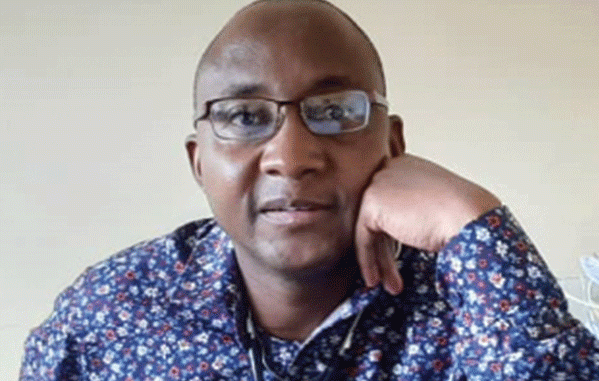
By Johannes Marisa THERE are so many Acts that govern our country. Constitutionalism is key in any country and is an enabler of national development. The Health Services Amendment Bill is a proposed legislation intended to amend the Health Services Act (Chapter 15:16).
The Health Services Act, which was enacted in February 2005 was aimed at providing for the establishment of the Health Services Board (HSB) and the transfer of persons engaged in public health service delivery from the Public Service Commission to HSB.
Health workers have been at loggerheads with their employer for some time over unresolved grievances which include poor working conditions and remuneration, among others.
The sector has been bedevilled by brain drain as thousands of health workers leave for greener pastures.
The staff turnover is unfortunate because it is detrimental to the well-being of the country.
Medical practitioners, under the auspices of the Zimbabwe Medical Association, the Medical and Dental Private Practitioners Association of Zimbabwe contributed their views on the Bill and noted some grey areas.
It would be of importance if such views are taken on board as doctors, nurses, scientists are key stakeholders in health service delivery. These are the same people who stood their ground and remained astute during the COVID-19 pandemic period when both morbidity and mortality were high.
The practitioners are concerned that section 5 of the Bill restricts industrial action by health employees and that section could have been included as a direct response to collective job actions by health practitioners in 2018, 2020 and 2020.
- Chamisa under fire over US$120K donation
- Mavhunga puts DeMbare into Chibuku quarterfinals
- Pension funds bet on Cabora Bassa oilfields
- Councils defy govt fire tender directive
Keep Reading
This section can be used as a weapon to muzzle health workers from airing their grievances. It is, therefore, prudent to note the following:
Health practitioners feel that there is serious violation of their labour rights and constitutional freedoms. There is obvious violation of section 65 of the Constitution which states that every person has the right to fair labour practices and standards and to be paid a fair and reasonable wage.
There is a general feeling that the Bill (if enacted) will see the government forcing its employees to work against their will. There are times when health workers become genuinely incapacitated. Sections 54 and 55 of the Constitution outlaw slavery, servitude, forced or compulsory labour.
The section imposes criminal punishment on health workers who elect to exercise rights available to other employees of the State. Section 56 of the Constitution prohibits all forms of discrimination.
The Bill states that any member who incites or organises job action faces prosecution with a potential sentence of three years in prison or a level 10 fine or both. This section is seen as too harsh and vindictive towards the leaders of unions.
Medical practitioners find the Bill to serve the State’s interests at the expense of health workers. The employee has limited liberty to express disgruntlement over poor salary and other conditions of service.
The Parliamentary Portfolio Committee on Health should, thus note the concerns of the medical practitioners as they play a pivotal role in health service delivery. Any laws that are seen as draconian may fuel brain drain. There is high staff turnover in public health institutions and this is the time to come up with friendly laws that de-escalate the existing tension between government and its employees.
In 2021, Zimbabwe lost more than 2 100 health workers to countries such as United Kingdom, Australia, United States of America, Namibia or South Africa. In 2019 and 2020, 670 and 1 100 workers left the country, respectively.
In view of the above developments, I suggest the following:
Need for revision of the Bill.
Government should continue engaging health workers for improved conditions of service.
Hospital infrastructure should be upgraded with basic resources being availed to create a good working environment.
It is not late to expunge sections of the Bill that are deemed offensive.
- There should be thorough revision on some critical and contested aspects of the Bill so that important stakeholders’ views are included.
- Government should continue engaging healthcare workers for improved conditions of service. This will help curtail massive brain drain currently tormenting the health sector. All employees need reasonable remuneration, better working conditions, incentives in order to keep them motivated. Car loans, housing loans are of great important to our dedicated and diligent health personnel.
- Hospital infrastructure should be continuously upgraded with basic resources being availed in order to create a sound working environment that saves patients. A health worker who does not get gloves to use on a patient will surely lose heart.
It is not late to repel sections of the Bill that are deemed vindictive. The better the bill, the better the act, hence the required satisfaction.
- Johannes Marisa is the president of the Medical and Dental Private Practitioners Association of Zimbabwe. He writes here in his personal capacity.











